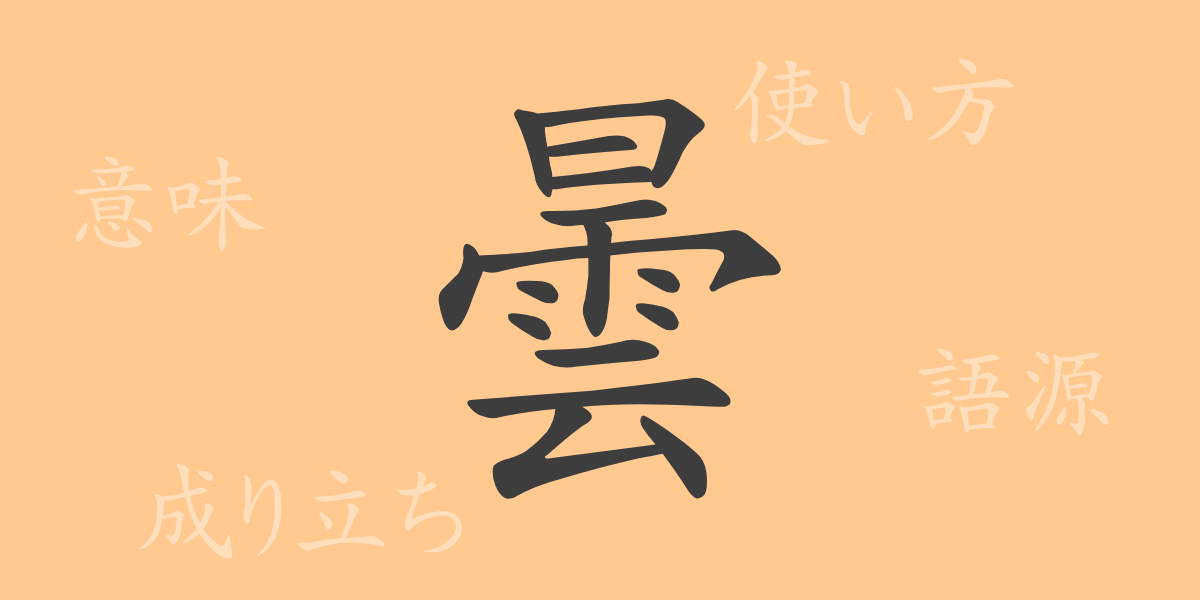Cloudy skies often mirror the fluctuations in our emotions. The Kanji ‘曇 (くもり)’ signifies more than just overcast skies; it is imbued with a rich history and meaning. In this article, we delve into the Kanji ‘曇’, exploring its origins, meanings, usage, readings, and associated idioms and proverbs. Understanding the depth of ‘曇’ will enrich your appreciation of the language.
Origins of ‘曇 (くもり)’
The Kanji ‘曇’ depicts clouds thickening to cover the sky, originating from ancient China where cloud changes were crucial for weather prediction. Originally resembling the character for ‘cloud’, it has evolved over time to its current form. The etymology of ‘曇’ symbolizes clouds obscuring the sun or moon.
Meaning and Usage of ‘曇 (くもり)’
The primary meaning of ‘曇’ refers to a state where clouds spread across the sky, blocking sunlight. When the weather forecast says ‘曇り (cloudy)’, it suggests an ambiguous, neither sunny nor rainy state. This Kanji is used to describe weather conditions and metaphorically to express somber moods or facial expressions.
Readings, Stroke Count, and Radical of ‘曇 (くもり)’
The Kanji ‘曇’ reflects the complexity of the Japanese language in its structure and readings.
- Readings: On’yomi ‘ドン’, Kun’yomi ‘くも.る’
- Stroke Count: 16 strokes in total
- Radical: 雨部 (‘あめへん’) related to rain or weather
Phrases, Idioms, and Proverbs Using ‘曇 (くもり)’
There are numerous idioms and proverbs that include ‘曇’, each with its own unique meaning and nuance.
- 曇天 (どんてん): Refers to a cloudy or overcast weather.
- 心が曇る (こころがくもる): Describes a heart filled with sadness or distress.
- 曇り空 (くもりぞら): Describes a sky covered with clouds.
- 顔を曇らせる (かおをくもらせる): Means one’s expression becoming gloomy or sad.
Conclusion on ‘曇 (くもり)’
The Kanji ‘曇’ is a profoundly expressive character used frequently to describe both weather and emotional states. Understanding its evolution and contemporary applications deepens our grasp of the Japanese language. This character uniquely connects natural phenomena with human emotions, symbolizing the beauty of Japanese expression.

























